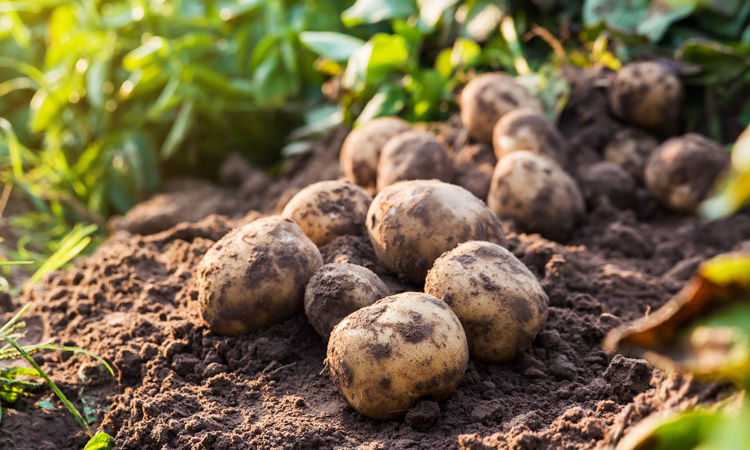EFSA assesses health risk of natural compound found in potatoes
- Like
- Digg
- Del
- Tumblr
- VKontakte
- Buffer
- Love This
- Odnoklassniki
- Meneame
- Blogger
- Amazon
- Yahoo Mail
- Gmail
- AOL
- Newsvine
- HackerNews
- Evernote
- MySpace
- Mail.ru
- Viadeo
- Line
- Comments
- Yummly
- SMS
- Viber
- Telegram
- Subscribe
- Skype
- Facebook Messenger
- Kakao
- LiveJournal
- Yammer
- Edgar
- Fintel
- Mix
- Instapaper
- Copy Link
Posted: 14 August 2020 | Sam Mehmet (New Food) | No comments yet
Upon request of the European Commission, EFSA has assessed the health risks associated with glycoalkaloids (GAs) in the Solanaceae family of plants.


The European Food Safety Authority (EFSA) has assessed the risks to human and animal health related to the presence of glycoalkaloids (GAs) in food and feed, particularly in potatoes and products derived from potatoes. Non-edible parts of have not been considered, with the exception of potato sprouts.
GAs are naturally occurring compounds found in the Solanaceae family of plants, which includes potatoes, tomatoes and aubergines, and they contribute to the plant’s resistance of pathogens and pests. GA poisoning can cause acute gastrointestinal symptoms, such as nausea, vomiting and diarrhoea in humans.
Experts identified a health concern for infants and toddlers, considering both mean and high consumers. Among adults, it was noted that there is a health concern for high consumers only.
Based on the latest available knowledge, EFSA derived a lowest observed adverse effect level of one milligram per kilogram of body weight per day – equivalent to the lowest dose at which undesired effects are observed.
Peeling, boiling and frying can reduce the content of GAs in food, EFSA noted. For example, peeling potatoes can reduce their content by between 25 and 75 percent, boiling in water between five and 65 percent, and frying in oil between 20 and 90 percent.
The following recommendations have been made by EFSA to improve the risk assessment for humans:
- Research on the occurrence of GAs and their aglycones and other potentially toxicologically relevant secondary plant metabolites in the potato cultivars available on the market and on new potato cultivars resulting from breeding experiments
- Occurrence data on GAs and their aglycones in potato processed products, including goods for infants
- Occurrence data on GAs and their aglycones in tomato and aubergine products thereof
- Data on the toxicokinetics of potato, tomato and aubergine GAs and aglycones in experimental animals and humans
- Studies in humans linking dietary exposure, biomarkers of exposure and adverse effects.









